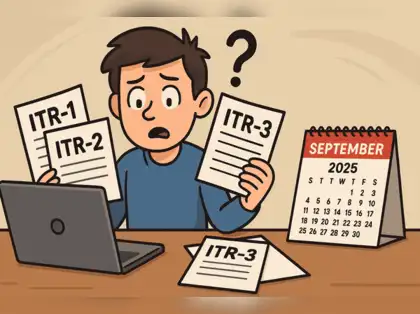The Benefits of HRIS: A Comprehensive Guide
In today’s fast-paced business world, Human Resource Information Systems (HRIS) have become an essential tool for organizations of all sizes. HRIS software enables businesses to streamline their HR processes, improve efficiency, and enhance overall employee management. In this article, we will explore the numerous benefits of HRIS and how it can revolutionize your organization.
Enhanced Efficiency and Time Savings
One of the key advantages of implementing an HRIS is the significant improvement in efficiency and time savings it offers. With HRIS, manual and time-consuming tasks like employee data management, payroll processing, and benefits administration can be automated. This automation eliminates the need for manual data entry, reduces errors, and frees up HR professionals to focus on more strategic initiatives.
Improved Data Accuracy and Security
HRIS systems provide a centralized database to store and manage employee information securely. By eliminating paper-based records and spreadsheets, HRIS minimizes the risk of data loss, unauthorized access, or human errors. Additionally, robust security features and access controls ensure that sensitive employee data is protected, complying with data privacy regulations.
Streamlined Recruitment and Onboarding
HRIS software simplifies the recruitment and onboarding process, enabling HR teams to attract, evaluate, and hire top talent efficiently. With HRIS, job postings can be easily created and distributed across multiple job portals, and applications can be seamlessly managed within a single system. Automated onboarding workflows help new hires complete paperwork, access training materials, and integrate into the organization smoothly.
Effective Performance Management
HRIS facilitates effective performance management by providing a structured framework for goal setting, performance tracking, and feedback. Performance metrics and key performance indicators (KPIs) can be easily defined and monitored through the system. This allows managers to provide timely feedback, identify skill gaps, and support employee development, leading to improved performance and increased employee satisfaction.
Enhanced Employee Self-Service
HRIS empowers employees by providing self-service portals where they can access and update their personal information, view pay stubs, request time off, and enroll in benefits programs. This self-service functionality reduces administrative tasks for HR professionals and empowers employees to manage their own HR-related needs, leading to increased satisfaction and engagement.
Accurate Payroll Processing
With HRIS, payroll processing becomes more accurate, efficient, and compliant. The system automates calculations, tax deductions, and benefit deductions, ensuring accurate and timely payments. By integrating with time and attendance systems, HRIS can also track employee hours, overtime, and leave, further streamlining the payroll process.
Comprehensive Reporting and Analytics
HRIS provides robust reporting and analytics capabilities, allowing HR professionals and management to gain valuable insights into workforce trends, performance metrics, and compliance. Customizable reports can be generated to analyze data such as employee turnover, training needs, and diversity metrics. These insights enable data-driven decision-making, leading to improved HR strategies and overall business performance.
Scalability and Flexibility
HRIS systems are designed to accommodate the evolving needs of growing organizations. Whether you are expanding your workforce, opening new locations, or adopting new HR policies, HRIS can easily scale and adapt to these changes. This scalability and flexibility ensure that your HR processes remain efficient and aligned with your organization’s goals.
Compliance with Regulations
HRIS helps organizations ensure compliance with labor laws, industry regulations, and internal policies. The system can automate compliance-related processes, such as tracking certifications, managing employee records, and generating required reports. By maintaining accurate and up-to-date compliance data, HRIS minimizes the risk of penalties, audits, and legal issues.
Cost Savings
Implementing an HRIS can lead to significant cost savings for organizations. By automating manual processes, reducing paperwork, and minimizing errors, HRIS optimizes resource utilization and reduces administrative costs. Additionally, HRIS enables better workforce planning, talent management, and employee retention, resulting in long-term cost savings for the organization.

As you can see, the benefits of HRIS are vast and impactful. By implementing an HRIS system, your organization can experience enhanced efficiency, improved data accuracy, streamlined processes, and better decision-making. TakLeapdernizing your HR practices and unlocking the full potential of your workforce with HRIS.
Frequently Asked Questions – Benefits of HRIS
1. What is HRIS?
HRIS stands for Human Resource Information System. It is a software solution that helps organizations manage their HR processes efficiently.
2. What are the benefits of using HRIS?
Using HRIS can streamline HR operations, improve data accuracy, enhance employee self-service, automate repetitive tasks, and provide valuable insights for decision-making.
3. How can HRIS improve data accuracy?
HRIS eliminates manual data entry and reduces the chances of errors. It ensures that employee information, such as personal details, job history, and performance records, are up-to-date and accurate.
4. Can HRIS help in reducing administrative tasks?
Yes, HRIS automates various administrative tasks like payroll processing, leave management and benefits administration. This reduces the time spent on paperwork and allows HR professionals to focus on strategic activities.
5. Does HRIS provide employee self-service?
Yes, HRIS typically includes a self-service portal where employees can access and update their personal information, submit leave requests, view pay stubs, and participate in performance evaluations.
6. How does HRIS improve decision-making?
HRIS provides real-time access to HR data and generates comprehensive reports and analytics. This enables HR managers to make informed decisions regarding workforce planning, talent management, and performance evaluation.
7. Can HRIS help in compliance with labor laws and regulations?
Yes, HRIS can assist in ensuring compliance by automating processes related to labor laws, such as tracking employee work hours, managing leaves by regulations, and generating required reports.
8. Does HRIS integrate with other systems?
Yes, HRIS can integrate with other systems like payroll software, time and attendance systems, and recruitment platforms. This integration ensures seamless data flow and eliminates duplicate data entry.
9. Is HRIS suitable for small businesses?
Yes, HRIS can benefit small businesses by reducing administrative burdens, improving data accuracy, and providing valuable HR insights. There are also HRIS solutions specifically designed for small businesses.
10. How can HRIS enhance employee engagement?
HRIS facilitates better communication between employees and HR through self-service portals, allowing employees to access information, submit requests, and provide feedback. This enhances employee engagement and satisfaction.




